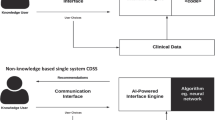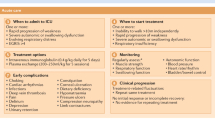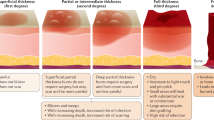Key Points
-
Provides an insight into the role of military dental teams.
-
Illustrates the prominence of dental morbidity, as a leading cause of disease and non-battle injury.
-
Describes the impact of dental problems on individual military personnel.
-
Highlights the importance of deployable dental capability to the armed forces during times of conflict.
Abstract
The majority of dental care for military personnel is carried out in clinics that would be familiar to all dental professionals. In times of conflict, however, dental care is often required to travel to those in need. Dental morbidity has a detrimental effect on a fighting force, both at the personal level and for maintaining combat efficiency. In Afghanistan, two main dental centres provided the majority of emergency care to coalition forces, but from March to September 2012, 23 peripatetic clinics also took place with 472 dental casualties treated. Assessment of these peripatetic clinics demonstrates both quantitative and qualitative benefits. Return travel to main base clinics takes between three to five days. If all personnel during this period had attended a main base and returned to their duty station in only three days, over 1,000 duty days would have been lost. This compares to the 32 days actually lost by attending peripatetic clinics instead and illustrates the considerable time that was saved. Additionally, time spent travelling in a hostile environment is also time at risk of attack. Forty-one anonymous comments about the clinics were left by personnel. All were positive and enthusiastic. The results of this review demonstrate that these clinics save considerable mission time, reduce risk to military personnel, and were greatly valued by those suffering dental problems.
Similar content being viewed by others
Introduction
During the recent Afghan conflict, British military forces were deployed as part of the International Security Assistance Force to support the Government of the new Islamic Republic of Afghanistan.1 The majority of UK personnel in Afghanistan were based in the central area of Helmand Province. The largest UK operating base was the logistical hub at Camp Bastion (Bastion) and most UK military personnel served there. The remaining UK forces were deployed in numerous smaller bases throughout the area, including Kabul, the airport at Kandahar (KAF), and at various locations along the Helmand river valley.
There were UK military dental centres at Bastion and KAF, manned by British dental teams. Service personnel serving at these sites could generally receive same day treatment for dental problems. This was not the case, however, for UK Forces at other locations.
Disease and non-battle injury (DNBI) has a considerable negative impact on a fighting force and the minimisation of DNBI is essential for maintaining combat efficiency.2 DNBI features prominently in the history of military campaigns with more forces having been degraded by DNBI than by combat. Dental morbidity is a common cause of DNBI, typically being in the top five reasons for a soldier reporting sick (Table 1), with considerable associated impact on operations in terms of the effect on the individuals concerned and in time lost to the mission.3
British forces have all diagnosed treatment needs completed at home before being deployed on operations. However, on deployment, as at home, people develop dental problems that were not foreseen and that need to be addressed.
Failed restorations and caries-related pathology are the main causes of dental problems but, as a single diagnostic entity, partly erupted third molars give high levels of morbidity (Table 2). With extended lines of communication, travelling for dental care is also subject to increased risk in a hostile environment, not only for the patient but for those providing transport security.
In Afghanistan, Bastion and KAF had well-equipped dental centres that provided emergency dental treatment to coalition forces. Treatment was to the same assured clinical quality standards as that provided in the UK.4 At Bastion and KAF, emergency treatment could often be provided more quickly than in the UK, as no routine treatment is undertaken during conflicts. Only urgent or emergency care is provided, ensuring that those with dental problems were treated and returned to duty as quickly as possible.
However, military personnel who were not based in these main locations had limited access to care without undertaking road transport or, as in many cases, travel by helicopter. This often required them to be placed on medical evacuation flights in order to receive emergency dental treatment at Bastion or KAF. In order to minimise the need for those with dental problems to travel for care, dental peripatetic clinics were undertaken.
Description of services
Dental peripatetic clinics
Dental peripatetic clinics help to mitigate the impact of dental morbidity on soldiers based in forward, often isolated, locations. This service had a direct positive impact on working time lost, ensuring that soldiers received treatment for dental emergencies at their duty locations. They also provided time for basic oral health promotion, medical training and, anecdotally, for providing that 'looked after feeling' to the troops. The reality of this was to be evaluated in this service review.
A peripatetic clinic is typically three days in duration. One day each for travel in and out of location, leaving one full day for clinical care. This was necessary because operational commitments did not allow flight timetable information to be announced until the evening before the flight, and by experience it has been found that one clinical day was usually adequate for most locations. The dental team worked until all patients had been treated. If travel occurred early on the first day, it allowed for some personnel to be treated earlier and permitted those with a requirement to be reviewed to be seen on the following day.
In Helmand, for larger operating bases, a peripatetic clinic was established every four to five weeks, with clinics at smaller bases occurring every six to eight weeks. Visits were not undertaken at all of the smaller bases, due to limited infrastructure to support a dental clinic, and often small numbers of personnel. However, personnel from the smallest bases were encouraged to attend a peripatetic clinic closest to their location, again to minimise travel to more distant KAF and Bastion, thereby minimising time lost and time at risk from attack.
Method of travel
Helicopter transport (Fig. 1) allowed for rapid deployment and return to base for a dental team but could be subject to change due to weather and other operational priorities. If the timetable for a clinic and dental team allowed, overland transport was used to good effect. However, due to the nature of road moves, they could often only be used in a single direction.
Findings of the review
The principal author was the Senior Dental Officer based at Bastion from March to September, 2012. Over this period, a total of 23 peripatetic forward clinics were conducted by mobile dental teams. A total of 472 patients were seen in these clinics, of which 369 were UK military personnel. An assessment of the utility of dental peripatetic clinics demonstrates both the overall time saved and qualitative benefits for the Service personnel. For casualties, the savings in time which would otherwise be lost to travel is considerable and is illustrated in Table 3.
Typically, the return time taken for personnel who needed to travel to Bastion or KAF, as recorded locally, was between three and five days. If all who were treated in this review had returned to Bastion or KAF for dental treatment, instead of being able to attend a peripatetic clinic, and they had been able to return to their place of work, for example, in the lesser time of three days, this would have resulted in 26,568 hours or 1,107 days lost. When compared to the 32 days (773 hours) actually lost to the mission, for those attending the peripatetic clinics, the duty time saved by this mobile service was considerable. This service saved duty time and travel time, minimising the risk of insurgent attack.
It is acknowledged that the presence of a clinic may have resulted in attendances that would not otherwise have occurred, due to opportunistic access for less urgent problems or for advice. In the weeks when peripatetic clinics did occur, slightly higher rates of dental DNBI were recorded. This may, however, be viewed as a positive consequence of the forward clinic, in that personnel who may otherwise have chosen not to leave their duty station to deal with a dental problem, were now able to access care in location. Comments from patients support this observation.
A proportion of our military personnel seemed to endure dental problems, as the qualitative statements reveal the reluctance of some individuals to leave colleagues short of support while they accessed healthcare services. This seems also to hold true if they knew a clinic was to be held near their location in the near future. However, the peripatetic clinics did not get to all areas; therefore there was probably unmet need for emergency care within the military population on the ground of which we were unaware. Figure 2 illustrates the deployed team in location.
Feedback from patients
Over the same reporting period, personnel who accessed a forward clinic were invited to make anonymous comment about their experience and on the perceived value, or otherwise, of the service.
A total of 41 written comments were left by personnel on departure from the mobile facility. All of these patient comments were positive and enthusiastic about the value of the service. The following examples are typical comments made by military of all ranks, in their own words, about the peripatetic dental clinic they had attended.
'The clinic in [location] is invaluable particularly for those of us who deploy for 12 months. Peace of mind shouldn't be underestimated.' Brigadier
'I have had pain for nearly two months but I didn't want to leave my team without a gunner. If there were more visits I could have had the tooth fixed before.' Private Soldier
'The clinic was great. I got a filling replaced and still had the day in work. If I would have had to go back to Bastion then they would have needed to get a replacement for me. So it allowed our department to continue operating as normal. Thank you very much.' Signalman
'I reckon the mobile clinic is a great idea. I'm part of the Mortar Platoon, so if I didn't come to the clinic I would have had to take a couple of days away in Bastion which would have meant that we wouldn't have enough manpower to man our mortar line, so the people on the ground wouldn't have their mortar capability.' Corporal
Feedback from local medical officers
The following observations were made by the medical officers at two of the visited bases:
'Thank you for your assistance during [this tour]. You and your team have visited for a few days every month and have eased the burden of sending soldiers back to Bastion for dental care....the burden on primary health care of dental requests is innumerable. On our statistics each week dental remains in our top three – as you know PHC is required to provide analgesia, antibiotics, attempt a diagnosis and then to organise a dental appointment. Being able to coordinate dental care at this location monthly has relieved the burden on an already busy facility. It has been relatively easy to send out a calling notice to surrounding bases who have sent in soldiers to (location) on our dental days and your dental team have worked hard late into the evenings for a solid few days in order to clear the list. Every patient that you have seen here has been able to avoid a minimum four day turn around in Bastion. The impact of this on operational effectiveness is immeasurable and, more importantly, by being accessible the soldiers have been ensured dental care rather than continuing to soldier until the dental issue becomes much worse and the chain of command are later forced to send the soldier for care.
All of your dental team who have come here have worked hard and integrated to the medical facility. They have been a pleasure to have around and we have fully appreciated their hard work while travelling forward from your normal offices. Please could you express our gratitude on behalf of all at the [location] and on behalf of the [unit].' Maj RAMC, Senior Medical Officer
'Thanks for providing dental cover to [unit] during our tour. The dental visits to [location] have allowed the [unit] to maintain adequate force protection/strength within the location. A lot of soldiers have sought dental help and advice where otherwise they may have tried to wait until a visit to Bastion or waited until their symptoms worsened to such a point where they had to depart promptly and create manning issues. The dentist has been with us for the past couple of days and has done a fantastic job (along with the dental nurse) of looking after those who presented dentally sick and reporting just to have a check on something. In my opinion there can't be too many visits to the [location] of the dental (and physiotherapy teams!) as the prompt resolution and ongoing specialist management of many conditions will maintain force protection during operations. Many thanks for your help.' Maj RAMC, Regimental Medical Officer
Discussion and conclusions
It is stated in British Joint Medical Doctrine that 'the contribution that health makes to fighting power, through the provision of healthcare, medical operational capability and health advice is implicit.'2
Additionally, it is acknowledged that, 'Modern Service personnel have been brought up in an environment where personal experience of high standards of medical care is the norm. These high expectations endure during military activities and any perceived, or actual, inadequacy in medical care or ethical behaviour is likely to reduce morale.' The morale boosting component of these mobile clinics is clear in many of the feedback comments, and the importance of moral as a vital component of fighting power is further emphasised in British Defence Doctrine itself.5
From March to September 2012, the British Senior Dental Officer in Helmand Province, Afghanistan, undertook this review into the utility and benefits derived from forward dental peripatetic clinics. Previous empirical evidence suggested that intelligent forward deployment of dental capability had ensured that soldiers with dental emergencies were seen as quickly as possible. The results of this six-month review demonstrate that these clinics save considerable duty time for the mission and, arguably of equal importance, are greatly valued by those personnel suffering dental problems, providing pain relief for the individuals involved and improving the quality of life for those on the front line. The dental team visits have a significant positive impact on morale, in addition to the provision of clinical care.
Many of the personal comments also appear to indicate that there may have been significant unmet need among deployed military personnel and that some were living with problems rather than seeking care that would have taken them away from duty, possibly leaving their team short of military support. This is to the great credit of British military personnel. However, the effects on the individual, in terms of distraction, lost/disturbed sleep, and the resultant degradation, has not yet been fully quantified. Additionally, dental teams considered that they had a duty to support and sustain those personnel who put their lives at risk on a daily basis, and provide them with the best support that we were resourced to deliver. The comments from the medical officers on location also support the importance and utility of these clinics, acknowledging the significant contribution to care that these clinics provide.
It is considered that this review of a service within the military environment gives some insight into the role of mobile dental teams in a combat environment, and also demonstrates the importance of oral health and facilitated access to care for military personnel.
References
United Nations Security Council Resolutions. Security Council resolution 1386 on the situation in Afghanistan. 2001. Online information available at http://www.un.org/Docs/scres/2001/sc2001.htm (accessed February 2015).
Ministry of Defence. Joint doctrine publication 4-03: joint medical doctrine. 2011. Online information available at https://www.gov.uk/government/uploads/system/uploads/attachment_data/file/278645/20140129_JDP4_03_3rd_ed_ch_2_Web.pdf (accessed February 2015).
Defence Analytical Services Agency. Health information report. Ministry of Defence restricted document. Specific data in this paper used with permission, for further information contact Headquarters Surgeon General.
General Dental Council. Standards for dental professionals. Online information available at http://www.gdc-uk.org/Pages/default.aspx (accessed February 2015).
Ministry of Defence. Joint doctrine publication 0-01: UK defence doctrine. 2014. Online information available at https://www.gov.uk/government/publications/jdp-0-01-fourth-edition-british-defence-doctrine (accessed February 2015).
Author information
Authors and Affiliations
Corresponding author
Additional information
Refereed Paper
Rights and permissions
About this article
Cite this article
Davies, T., McCormick, R. The importance of, and the benefits derived from, forward dental peripatetic clinics in Afghanistan. Br Dent J 218, 303–306 (2015). https://doi.org/10.1038/sj.bdj.2015.143
Accepted:
Published:
Issue Date:
DOI: https://doi.org/10.1038/sj.bdj.2015.143
This article is cited by
-
Defence dentistry: an occupationally focused health service with worldwide deployable capability
British Dental Journal (2021)
-
The Royal Army Dental Corps today
British Dental Journal (2021)
-
The experience of deployed dental teams on Operation Herrick: dentists at war in Afghanistan
British Dental Journal (2021)
-
A bridge too far? The relationship between interventive operative dentistry and future dental morbidity
British Dental Journal (2019)





